BIOGRAPHY
| Aitken, Ben | The marmalade diaries |
| Faine, Jon | Apollo & Thelma |
| Jacoby, Anita | Secrets beyond the screen |
| McBryde, Renee | Unravelling us |
 The Marmalade Diaries: The True Story of an Odd Couple / Ben Aitken
The Marmalade Diaries: The True Story of an Odd Couple / Ben Aitken
In this heartwarming memoir, travel writer Aitken (The Gran Tour) describes spending a year in lockdown with an elderly stranger 50 years his senior. After the U.K.’s first wave of Covid-19 receded in the fall of 2020, Aitken moved into octogenarian Winnie Carter’s Victorian home in London, where he agreed to help around the house in exchange for reduced rent. When subsequent waves of Covid kept the two stuck indoors, the stage was set for a clash between Aitken’s easygoing manner and Winnie’s opinionated, exacting style. Aitken provides an irreverent day-by-day account of how, instead, the two forged an unlikely friendship as they bickered, watched Gardeners’ World on television, and slowly got to know each other—Winnie revealing her grief over the recent death of her husband and the stress of caring for her adult son, who had cerebral palsy and resided in an assisted living facility. The unlikely duo share a palpable chemistry, and Winnie is the kind of larger-than-life character that novelists will wish they had invented (“I thought he was just another pale lump,” she said about dining with Winston Churchill). Poignant and witty, this is a treat. Publisher’s Weekly, March 2022
Return to top
GENERAL FICTION
| Baldacci, David | The 620 man |
| Beech, Isobel | Sunbathing |
| Berry, Steve | The Omega factor |
| Bignell, Meg Ashton | The angry women’s choir |
| Byron, Jacquie | Happy hour |
| Cavanagh, Steve | The Accomplice |
| Chalmers, Frank | Conviction |
| Daley, Paul | Jesustown |
| Davis, Rhett | Hovering |
| Du Maurier, Daphne | Rebecca |
| Featherstone, Nigel | My heart is a little wild thing |
| Fergusson, Ben | An honest man |
| Gutierrez, Katie | More than you’ll ever know |
| Horowitz, Anthony | With a mind to kill |
| Kidd, Jess | The night ship |
| Lando, Veronica | The whispering |
| Langan, Sarah | Good neighbours |
| Lelic, Simon | The hiding place |
| Limprecht, Eleanor | The coast |
| Lloyd, Ellery | The club |
| Pearse, Lesley | Deception |
| Phillips, Polly | The reunion |
| Roberts, Nora | Legacy |
| Schmidt, Sarah | Blue hour |
| Snoekstra, Anna | Out of breath |
| Walton, Dawnie | The final revival of Opal & Nev |
| Watson, James McKenzie | Denizen |
| Worrall, Patrick | The partisan |
 Happy hour / Jacquie Byron
Happy hour / Jacquie Byron
For Franny Calderwood, 65, her grief at the sudden tragic death of her husband three years before has resulted in an isolationist policy. Franny had a wonderful marriage, but because she could not cope with anyone’s sympathy, she has cut herself off from friends and family in a determined effort to be alone. Franny likes a drink on a hot day, a cold day, on any day really, and eventually it doesn’t seem to matter what time of day. Whether it is gin, whisky, wine, sherry or champagne, she is happy to fill her glass. Even her dogs were called Whisky and Soda. Her solitude is broken by a new family moving next door in suburban Melbourne and despite herself, Franny becomes involved in their lives. Still chatting to photographs of her late husband scattered in every room, Franny keeps the rest of her previous circle at arm’s length while becoming more immersed in her neighbours’ problems, sometimes helpful, sometimes causing outrage with the mother, newly separated from her husband. Franny’s drinking remains a constant until catastrophe strikes and she has to consider her future. By that time some readers will be urging Franny to get a grip; but others will want her to continue her idiosyncratic existence. Byron has done an excellent job of portraying an ageing woman coping as best she can with her grief, living on memories, and unwilling to face the realities of life ahead. She has created a delightful character in Franny: witty, sardonic, angry, talented and innovative. She just drinks too much. Cheers, Franny! Good Reading Magazine, June 2022
 The Omega Factor / Steve Berry
The Omega Factor / Steve Berry
This lively standalone from bestseller Berry (the Cotton Malone series) centers on a panel stolen in 1934 from the Ghent Altarpiece, “one of the world’s great works of art, created in the early part of the fifteenth century, at the threshold of the Renaissance, by two brothers, Hubert and Jan van Eyck.” Early chapters alternate between Jan van Eyck and Nick Lee, a field operative in the present day dealing with artistic and cultural issues for UNESCO. Nick is in Ghent, Belgium, visiting his former fiancée, art restorer Kelsey Deal, who’s now a Catholic nun. Kelsey is restoring the altarpiece at the Cathedral of Saint Bavo when a fire breaks out. Nick arrives on the scene minutes later, and Kelsey orders him to chase after the vandal responsible for the blaze, who has also stolen her laptop containing images of the masterpiece. Nick and Kelsey are soon racing around France on the trail of a conspiracy linked to the Catholic church that originated 2,000 years ago. Berry once again smoothly blends action and history. Dan Brown fans will want to check this one out. Publisher’s Weekly, February 2022
 Good neighbours / Sarah Langan
Good neighbours / Sarah Langan
A seemingly perfect suburb hides secrets and violence just beneath the surface. From the outside, Maple Street looks idyllic. It’s in a Long Island suburb full of families who work hard and want the best for their children—but something isn’t right. The first sign is the giant sinkhole that opens in the community’s park, coating things in thick oil, scrambling cell signals, and claiming the life of a German shepherd. But the sinkhole is only the beginning of the real trouble for the families of Maple Street. Longtime resident Rhea Schroeder, a community college professor who’s hiding some of her own dark secrets, has it out for newcomer Gertie Wilde, a former pageant queen who doesn’t really fit in. Neither does Gertie’s family, which includes her former rock star husband, who commits the cardinal sin of smoking on the front porch instead of in the backyard like everyone else in the neighborhood. When Rhea’s daughter Shelly falls into the sinkhole, Rhea quickly launches into attack mode, blaming Gertie’s family for Shelly’s death. Things spin further out of control, ruining an entire neighborhood and countless lives in the process. The story itself is entertainingly absurd and over-the-top, but perhaps the most interesting part is the way Langan chooses to tell it. She intersperses the story with articles and interviews from years later referencing “the Maple Street Murders,” allowing not only a grim foreshadowing, but a slice of realistic true-crime obsession (as well as a glimpse into what the climate crisis may look like in the near future). An incredibly dark (and surprisingly fun) page-turner. Kirkus Review, February 2021
 The 6:20 Man / David Baldacci
The 6:20 Man / David Baldacci
A complex, high-powered thriller that will keep the reader guessing. Former U.S. Army Ranger Travis Devine regularly takes the 6:20 commuter train to a job he hates at Cowl and Comely, the New York firm where he is an investment analyst. He’s one of many “Burners,” or interns, who slave 80 hours a week and more for low pay in hopes of not being fired at the end of the year. Devine works there to appease his father, who had despised his son’s choice to serve his country instead of immediately going out and getting rich like his two older siblings. The morning train passes by the home of Cowl, whom the Burners are making richer and richer. Passengers get daily unfettered views of a gorgeous bikinied woman at Cowl’s swimming pool. She seems oblivious to the yearning gazes of the male commuters. Then, one morning at work, Devine receives an anonymous, untraceable text saying, “She is dead.” None of his fellow Burners received it. “She” is Sara Ewes, a colleague with whom he had once had sex. How could anyone know? It was a secret because dating within the company was a fireable offense. Apparently, she had hanged herself in the building. At home, Devine has interesting roommates, including a pizza-loving, Russia-born male computer hacker; a woman who’s building a dating website with phenomenal potential; and another woman who has recently graduated from law school. The Russian tries and fails to track the source of the text for Devine. More people die at the company, naturally freaking everyone out. Devine is a suspect, but a retired Army general protects him—for a price. Devine must help them unravel a secret at the company, and if he refuses, they will “send my ass right to USDB” (United States Disciplinary Barracks) for an act he had committed while in the Army. Readers will suspect nearly everyone in this fast-moving whodunit. Clues abound, like the color of a bathing suit and mysterious references to Waiting for Godot. A great line states that diversity in the high finance world looks like “a jar of Miracle Whip all the way to the bottom.” What fun! This is a winner from a pro. Kirkus Review, July 2022
Return to top
HISTORICAL FICTION
| Burton, Jessie | The house of fortune |
| Chater, Lauren | The winter dress |
| Forsyth, Kate | The crimson thread |
| Hornby, Gill | Godmersham Park |
| Lloyd, Robert J. | The bloodless boy |
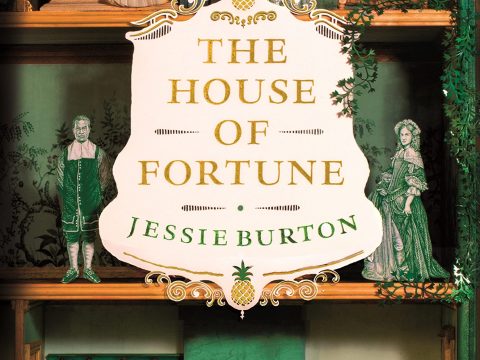 The House of Fortune / Jessie Burton
The House of Fortune / Jessie Burton
Burton returns with a captivating standalone companion to 2014’s The Miniaturist. In 1705 Amsterdam, 18-year-old Thea Brandt lives in a cold mansion with her father, Otto, a Black man who was formerly enslaved; her aunt Nella; and her elderly nursemaid and cook Cornelia. The family can barely afford the house, which Otto inherited, leading to Nella intensifying her efforts to find a wealthy husband for Thea, whose mother was white, and Otto thinking about partnering with a botanist to cultivate pineapples in Holland. Thea finds refuge at a nearby theater with her friend Rebecca, a fierce and talented leading lady; and Walter, the chief set-painter and Thea’s secret lover. However, after Walter breaks her heart, Thea resigns herself to marrying a wealthy lawyer from a prominent family. Throughout, the mysterious “miniaturist” of the previous book surreptitiously delivers warnings in the form of detailed figurines on Thea’s doorstep, each with its own eerie significance and seeming supernatural power, just as she had done years ago with Nella. While the ending feels a little abrupt, the vibrant period detail, the characters’ vibrant inner lives, and Thea’s fulfilling journey to maturity make for a winning combination. Readers will relish the return of Nella and her world. Publisher’s Weekly, May 2022
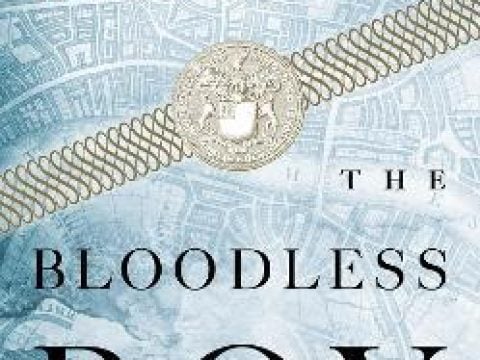 The bloodless boy / Robert J. Lloyd
The bloodless boy / Robert J. Lloyd
Set in 1678 London, Lloyd’s stunning debut and series launch makes the complex politics of the time feel immediate while integrating them into an engrossing whodunit. Sir Edmund Bury Godfrey, Justice of Peace for Westminster, tasks Harry Hunt, Observator of the Royal Society of London for the Improving of Natural Knowledge, and Harry’s former boss, the real-life Robert Hooke, Curator of Experiments of the Royal Society, with uncovering what led to the bloodless body of a three-year-old boy being abandoned near the Fleet River. The corpse had four puncture wounds, each with neat writing next to it. Hunt learns that another boy was found in similar circumstances a week earlier and must determine the deaths’ possible connection to the suicide of Henry Oldenburg, Secretary of the Royal Society; a rumored Catholic plot to assassinate the king; and messages employing the Red Cipher, last used during the English Civil Wars. Evocative prose, subtle characterizations, and an ingenious solution to a legendary real-life unsolved murder elevate this above most other historical mysteries. Fans of Iain Pears’s An Instance of the Fingerpost will be enthralled. Publisher’s Weekly, August 2021
Return to top
MYSTERY
| Carrisi, Donato | The whisperer’s game |
| Davis, Lindsey | Desperate undertaking |
| Davitt, Ellen | Force and fraud |
| Flood, Helene | The lover |
| Gentill, Sulari | The woman in the library |
| Gerritsen, Tess | Listen to me |
| Hall, J. M. | A spoonful of murder |
| Hart, Pamela | An a-list for death |
| Hickey, Margaret | Stone town. |
| James, Peter | Picture you dead |
| Jewell, Lisa | The family remains |
| Kelly, Jim | The great darkness |
| Matsumoto, Seicho | Tokyo express |
| Mina, Denise | Confidence |
| Moss, Tara | The ghosts of Paris |
| Paretsky, Sara | Overboard |
| Pearse, Sarah | The retreat |
| Reichs, Kathy | Cold, cold bones |
| Robotham, Michael | Lying beside you |
| Sandford, John | The investigator |
| Slaughter, Karin | Girl, forgotten |
| Taylor, Andrew | The royal secret |
 Desperate undertaking / Lindsey Davis
Desperate undertaking / Lindsey Davis
Davis’s superior 10th whodunit featuring private inquiry agent Flavia Albia (after 2021’s A Comedy of Terrors) combines an engrossing plot with a plausible evocation of life in ancient Rome. In 89 CE, Davos, an actor friend of Flavia’s adoptive parents, Marcus Didius Falco and Helena Falco, seeks their help probing the murder of Chremes, an actor-manager who also knew the older Falcos, who was “stripped naked and hung up to die on a cross” in one of Emperor Domitian’s stadiums. The emperor had modified performances of a popular drama so that the lead role—a bandit—would be played by a condemned criminal, enabling the execution by crucifixion at the end to be real. Outside the arena where Chremes was found, someone had posted a fake notice advertising the dead man’s upcoming appearance in the play as a means of getting passersby to enter and view the grim tableau. Meanwhile, Flavia has another bizarre murder to solve—a woman gored to death by a bull who identified “the undertaker” as her killer just before expiring. The tension is sustained throughout, and the mystery of the murders satisfactorily explained. This entry reinforces Davis’s place at the top of the Ancient Roman historical subgenre. Publisher’s Weekly, April 2022
 The Lover / Helene Flood
The Lover / Helene Flood
Thirtyish Rikke Prytz, the narrator of this mesmerizing tale of adultery, deceit, guilt, and betrayal from Flood (The Therapist), is married to her stodgy first love, Åsmund. Rikke, who feels like “a rat in a wheel,” becomes captivated by her handsome upstairs neighbor, Jørgen, a roving-eyed journalist whose wife has given up her concert career to keep his home and raise his child. Rikke’s breathless fling with him, delineated in heady flashbacks, turns sour just before Jørgen is found dead, his throat slashed in his study. Lying to both Åsmund and the police about her actions, Rikke gradually descends into a terrifying emotional maelstrom, caught between guilt that motivates repairing what’s damaged and shame that impels her to hide it. With razor-keen psychological insights into all her fully fleshed characters, Flood delivers a sure-handed portrait of a bored wife as an immature everywoman adulteress. This is impossible to put down. Publisher’s Weekly, June 2022
 The family remains / Lisa Jewell
The family remains / Lisa Jewell
Bestseller Jewell’s lively sequel to 2019’s The Family Upstairs juggles three different story lines that eventually overlap. In 2019, Det. Insp. Samuel Owusu investigates skeletal remains in a black trash bag that have washed up on the bank of the Thames. In 2016, 30-ish Rachel Gold, a London-based jewelry designer, meets Michael Rimmer, with whom she has a whirlwind romance that ends with Michael’s murder in Antibes in 2018. The third plot strand focuses on creepy Henry Lamb; Henry’s sister, Lucy Lamb, who was once married to Michael; and Lucy’s daughter, Libby Jones, whose escape from their childhood “house of horrors” was the centerpiece of the previous book. Henry’s obsessive search for Finn Thomsen, a companion from his terrifying and traumatic youth, worries Lucy, who tracks Henry to Chicago, while Libby is intent on finding her biological father. By rapidly jumping around in time, Jewell effectively keeps readers off balance all the way to the happy ending. Though this tale of child abuse and mayhem works as a standalone, those who haven’t read The Family Upstairs will immediately want to rush out and do so. Publisher’s Weekly, June 2022
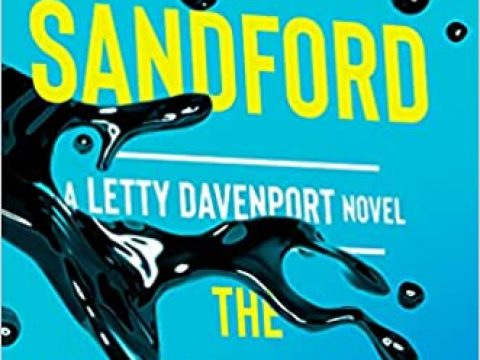 The investigator / John Sandford
The investigator / John Sandford
Introduced in 2003’s Naked Prey, Letty Davenport, U.S. Marshal Lucas Davenport’s adopted daughter, takes center stage in this welcome series spin-off from bestseller Sandford. Letty is bored by her D.C. job working for Senator Christopher Colles, until her unauthorized actions yield proof that two of his staff members stole hundreds of thousands of dollars from the politician’s campaign funds. When she resigns her job in the hope of finding something more suited to her thirst for action, Colles, impressed by her initiative, offers her an acceptable alternative. As a member of a committee overseeing the Department of Homeland Security, he’s able to hire Letty as a researcher to follow up on reports that a gang of crooks may have stolen hundreds of thousands of barrels of crude oil in West Texas. Colles fears that the money the thieves made from selling the oil could be funding a national security threat. That original premise, coupled with Sandford’s rounded portrayal of Letty as more than just a stock action hero, add up to one of his best books in years. Karen Sisco admirers will hope Letty has a long literary life. Publisher’s Weekly, February 2022
Return to top
NON FICTION
| Clark, Anna | Making Australian history |
| Clift, Charmian | Sneaky little revolutions |
| Cooke, Kaz | You’re doing it wrong |
| Cox Jensen, Oskar | Vagabonds |
| Gladwell, Malcolm | Outliers |
| Noon, Karlie | Astronomy |
| Partridge, Emma | The widow of Walcha |
 Making Australian History / Anna Clark
Making Australian History / Anna Clark
Historiography is the study of how history gets interpreted, written and how that changes over time and an integral part of the study of history. It certainly pays to know the difference between a Marxist and a Whig; a structuralist and an idealist. In Making Australian History Anna Clark provides a useful and accessible analysis of writing on Australian history since colonial times. The book groups the histories it surveys into related themes – for example, Contact is about first settlement and its survey starts with Cook’s journals; the publications of various First Fleet officers; early Australian histories and then reflects on how these sources have been interpreted in the work of, amongst others, Stanner, Inga Clendinnen and Grace Carskens. Inevitably, because it is Australia, both the History Wars per se and histories dealing with various facets of the Indigenous experience of settlement get extensive coverage. It is striking how often our contemporary debates come back to these issues. But there are also excellent chapters on Anzac, gender issues, and that older generation of historians such as Blainey, Ward and Manning Clark. Reminiscent of Tom Griffith’s The Art of Time Travel, Making Australian History would be appreciated by anyone with a serious interest in Australian history. Good Reading Magazine, May 2022
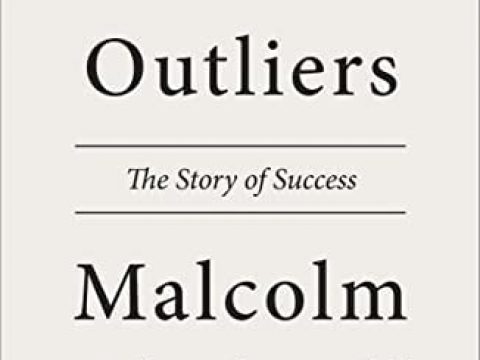 Outliers / Malcolm Gladwell
Outliers / Malcolm Gladwell
There is a logic behind why some people become successful, and it has more to do with legacy and opportunity than high IQ. In his latest book, New Yorker contributor Gladwell (Blink, 2005, etc.) casts his inquisitive eye on those who have risen meteorically to the top of their fields, analyzing developmental patterns and searching for a common thread. The author asserts that there is no such thing as a self-made man, that “the true origins of high achievement” lie instead in the circumstances and influences of one’s upbringing, combined with excellent timing. The Beatles had Hamburg in 1960-62; Bill Gates had access to an ASR-33 Teletype in 1968. Both put in thousands of hours—Gladwell posits that 10,000 is the magic number—on their craft at a young age, resulting in an above-average head start. The author makes sure to note that to begin with, these individuals possessed once-in-a-generation talent in their fields. He simply makes the point that both encountered the kind of “right place at the right time” opportunity that allowed them to capitalize on their talent, a delineation that often separates moderate from extraordinary success. This is also why Asians excel at mathematics—their culture demands it. If other countries schooled their children as rigorously, the author argues, scores would even out. Gladwell also looks at “demographic luck,” the effect of one’s birth date. He demonstrates how being born in the decades of the 1830s or 1930s proved an enormous advantage for any future entrepreneur, as both saw economic booms and demographic troughs, meaning that class sizes were small, teachers were overqualified, universities were looking to enroll and companies were looking for employees. In short, possibility comes “from the particular opportunities that our particular place in history presents us with.” The author’s lively storytelling and infectious enthusiasm make it an engaging, perhaps even inspiring, read. Sure to be a crowd-pleaser. Kirkus Reviews, May 2010
Return to top
SCIENCE FICTION & FANTASY
| Crouch, Blake | Upgrade |
| Scalzi, John | The Kaiju Preservation Society |
| Taylor, Jodi | Plan for the worst |
| Taylor, Jodi | Another time, another place |
 Upgrade / Blake Crouch
Upgrade / Blake Crouch
When a government agent is exposed to a virus that modifies his genetic code, he must consider whether to share these enhancements with the world or eradicate the virus. Logan Ramsay works for the Gene Protection Agency in a world where genetic modification has wreaked havoc on the ecosystem. His mother, a brilliant scientist, was responsible for the “Great Starvation” nearly two decades before, when she tried to improve the resistance of a rice plant to a particular virus and instead devastated the world’s rice supply. Two hundred million people died, and Logan went to prison for his role in the catastrophe; his mother took her own life. Now he investigates and takes down people who are running “dark gene lab[s]” and otherwise seeking to change the human genome. During a raid, Logan is exposed to a virus, and while the initial side effects seem to ease after a few days, he soon begins to notice unusual things: the fact that he can read incredibly complex books in just a few hours and retain all of the information; the fact that he can beat his daughter in chess, which hasn’t happened for years; the way he can remember every moment of his life in perfect detail. Government agents lock him up and run test after test as Logan becomes stronger and more intelligent by the day. It is revealed that, before her death, Logan’s mother promised to release “a viral gene drive” that would offer a “significant upgrade” to the human species. When someone arrives to break him out of the containment facility, Logan will be forced to make a decision: allow the genetic upgrade to spread through the human species, even though a certain percentage of the population will die horrible deaths, or destroy the virus. High-octane action, some moral complexity, and a surprisingly emotional ending elevate this novel. Recommended—even for reluctant science fiction readers. Kirkus Reviews, April 2022
 The Kaiju Preservation Society / John Scalzi
The Kaiju Preservation Society / John Scalzi
A more ethical Jurassic Park meets the camaraderie of Parks and Recreation in this wonderfully witty and refreshingly earnest adventure yarn from Hugo Award winner Scalzi (Redshirts). Atomic bomb tests in the 1950s revealed a parallel Earth inhabited by Godzillian kaiju, a fact Jamie Gray learns upon being hired by KPS, the eponymous secret organization, which monitors and protects the massive creatures. Jamie and several other new KPS employees are stationed at a base on this parallel Earth—and when an investor’s malfeasance threatens both Earths, the band of newbies fights back. The hyper-current story spans March 2020 through March 2021, touching on the Covid-19 pandemic and offering exactly the kind of playfulness and hope that were needed during that period (and are still more than welcome now). The parallel world Scalzi builds is understandably dangerous even as he carries on the science fiction tradition of questioning who the real monsters are, but those realistically dark elements help highlight the more optimistic themes of collective action and preservation. The resulting escape is equally lighthearted and grounded—and sure to delight. Publisher’s Weekly, December 2021
Return to top
TRAVEL
| Aitken, Ben | Dear Bill Bryson |
Return to top
New additions to eBooks at SMSA
EBOOKS
| General novels | Orr, Kelly | Someone else’s child |
| General novels | van der Werf, Gerwin | The hitchhiker |
| General novels | Dahl, Julia | The missing hours |
| General novels | Williams, Shanora | The wife before |
| Historical novels | Burton, Jessie | The house of fortune |
| Mystery | Slaughter, Karin | Girl, forgotten |
| Mystery | James, Peter | Picture you dead |
| Mystery | Dodd, Christina | Point last Seen |
| Mystery | Kelly, Ian | The Barra boy |
| Science fiction | Young, Georgina | Bootstrap |
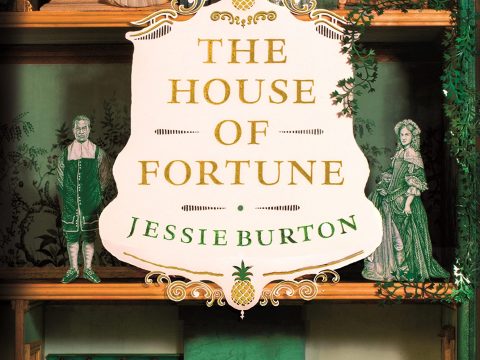 The house of fortune / Jessie Burton
The house of fortune / Jessie Burton
Burton returns with a captivating standalone companion to 2014’s The Miniaturist. In 1705 Amsterdam, 18-year-old Thea Brandt lives in a cold mansion with her father, Otto, a Black man who was formerly enslaved; her aunt Nella; and her elderly nursemaid and cook Cornelia. The family can barely afford the house, which Otto inherited, leading to Nella intensifying her efforts to find a wealthy husband for Thea, whose mother was white, and Otto thinking about partnering with a botanist to cultivate pineapples in Holland. Thea finds refuge at a nearby theater with her friend Rebecca, a fierce and talented leading lady; and Walter, the chief set-painter and Thea’s secret lover. However, after Walter breaks her heart, Thea resigns herself to marrying a wealthy lawyer from a prominent family. Throughout, the mysterious “miniaturist” of the previous book surreptitiously delivers warnings in the form of detailed figurines on Thea’s doorstep, each with its own eerie significance and seeming supernatural power, just as she had done years ago with Nella. While the ending feels a little abrupt, the vibrant period detail, the characters’ vibrant inner lives, and Thea’s fulfilling journey to maturity make for a winning combination. Readers will relish the return of Nella and her world. Publishers Weekly, May 2022
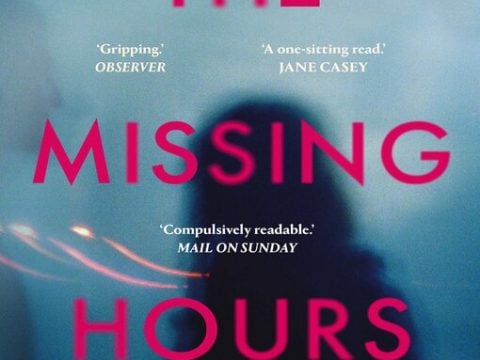 The missing hours / Julia Dahl
The missing hours / Julia Dahl
NYU freshman Claudia Castro, the protagonist of this provocative standalone from Edgar finalist Dahl (the Rebekah Roberts series), has pretty much sailed through her first 20 years—until the day she wakes up in her nearly deserted dorm during spring break with a black eye, busted lip, bruising hangover, and no idea what happened to her. Too shaken to contemplate facing her family, Claudia uncharacteristically accepts the kindness of fellow student Trevor Barber, a relative stranger from a working-class background. Claudia’s starting to get back on her feet when she receives a shattering video showing all too graphically some of what occurred during the time she can’t remember, and struggles with whether to go to the police and risk being forever defined as a victim, or seek her own vigilante-style justice with Taylor’s help. For better and worse, the glamour of Claudia’s lifestyle, including a palatial Martha’s Vineyard seaside estate as potential hideaway, make this psychological thriller pleasurable to read, but it also somewhat blunts the trauma of what is an all-too-real scenario. Though Dahl doesn’t hit a home run, credit her with ambitiously tackling a broad canvas. Publishers Weekly, July 2021
 Girl forgotten / Karin Slaughter
Girl forgotten / Karin Slaughter
Bestseller Slaughter’s gripping follow-up to 2018’s Pieces of Her takes Andrea Oliver, a newly minted U.S. marshal, and her partner, Deputy Leonard Bible, to Longbill Beach, Del., to protect federal judge Esther Vaughn, who has received a series of threatening letters. Longbill Beach happens to have been the childhood hometown of Andrea’s psychopathic father, Clayton Morrow, who was convicted of domestic terrorism and is now up for parole. Andrea believes Clayton poses a threat to her mother’s safety if he’s released from prison. In 1982, Clayton was a suspect in the murder of Judge Vaughn’s 18-year-old daughter, Emily. If Andrea can prove Clayton guilty of this crime, he will remain behind bars. Deputy Bible, too, has a private agenda and is looking into a series of suicides that have occurred in the area. Captivating flashbacks follow Emily in the period leading up to her death as she engages in a Columbo-inspired investigation of her own. Was what happened to Emily a prelude to even more horrific crimes? Andrea’s complicated backstory at times slows the pace, but readers eager to see justice for Emily will keep turning the pages. Slaughter reliably entertains. Publishers Weekly, July 2022
 The wife before / Shanora Williams
The wife before / Shanora Williams
A second wife is drawn into the tragedy that killed the first–and must find out the truth before she’s next. Needing to make some quick money, Samira accepts a waitressing job at a charity event where she has a meet-cute with famous golfer Roland Graham. Soon they are an item, and he’s wowing her with trips and gifts–and in the bedroom. Samira’s brother cautions her, though, to be careful; Roland’s first wife, Melanie, died under mysterious circumstances, and there’s a lot of speculation (on social media, anyway) that Roland was responsible. Samira’s doubts are soon put to rest by Roland’s reassurances, and they get married and move into Roland’s mansion in Colorado–the mansion where he used to live with Melanie. Though the setting lacks a true gothic flavor, there is a definite current of unease that affects Samira’s embracing of this luxurious lifestyle; she meets Roland’s handsome cousin, Dylan, and the housekeeper/chef, Yadira, and then she finds Melanie’s journals. Williams offers these journals in Melanie’s voice, so the reader slowly begins to learn more about Melanie’s life and marriage at the same time that Samira does: the distance that gradually grows between her and her handsome husband; her attraction to dashing Dylan; her complicated sister drama. Samira can’t confront her husband with these truths, but as she reads further and digs deeper into Melanie’s past, she understands that she must discover the truth behind her death–before it’s too late for Samira, too. Despite some comparisons to du Maurier’s Rebecca, the novel is much less atmospheric and nuanced than that classic. Williams does give both Melanie and Samira multiple dimensions; they’re flawed but also strong and determined, and the twist at the end is a surprise. A thriller with a familiar foundation but some contemporary spice. Kirkus Reviews, April 2022
Return to top
AUDIOBOOKS
| Non fiction | Chittka, Lars | The Mind of a bee |
| Historical novels | Belfer, Lauren | Ashton Hall |
| Mystery | Amphlett, Rachel | A silent truth |
| Mystery | Bbradford, Laura | A perilous pal |
| Mystery | Bessette, Alicia | Smile Beach murder |
| Mystery | Cantore, Janice | Code of courage |
| Mystery | Crowe, Kitt | Digging up trouble |
| Mystery | Dark, Rylie | Only rage |
| Mystery | Greene, Morgan | Old blood |
| Mystery | Thompson, Victoria | Murder on Bank Street |
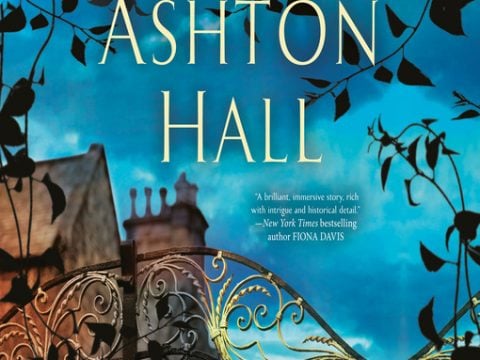 Ashton Hall / Lauren Belfer
Ashton Hall / Lauren Belfer
In the well-crafted latest from Belfer (And After the Fire), Manhattan art historian Hannah Larson puts her career on hold to give her son, Nicky, who suffers from violent outbursts, the constant care he needs. When Hannah’s uncle invites her and Nicky to spend the summer in England, she’s just discovered that her husband, Kevin, is having an affair, and welcomes the respite from marital tensions. Hannah and nine-year-old Nicky are fascinated by Ashton Hall, the ancient Cambridgeshire manor in which her uncle leases an apartment. Exploring an abandoned wing, Nicky discovers a skeleton in a room that’s walled up except for a single small opening. The body is identified as that of Isabella Cresham, a late–16th-century member of the family that once owned the Hall, and some of the artifacts found nearby suggest that Isabella was a Catholic despite her era’s brutal religious strictures. Hannah, herself feeling trapped due to financial dependence on Kevin, who refuses to end his affair, is drawn to Isabella’s story. As she gleans details of Isabella’s life from sketchbooks and ledgers found in another room in the house, she struggles to chart her own future. Without slipping into country house clichés or simplistic parallels, Belfer offers a nuanced exploration of the ways women’s lives are constricted. Anglophiles and Tudor history buffs will enjoy this immersive tale. Publishers Weekly, April 2022
 Smile beach murder / Alicia Bessette
Smile beach murder / Alicia Bessette
In this perky series launch from Bessette (Simply from Scratch), Callie Paget, a single, 38-year-old journalist who loves Mary Higgins Clark novels, has reluctantly returned home to Cattail Island on North Carolina’s Outer Banks after being laid off at the Charlotte Times. She takes a job at the island’s bookstore, where she runs into high school pal Eva Meeks, who’s searching for books on Blackbeard’s treasure. Legend has it the treasure is somewhere on the island, and Eva believes she has dug up a clue pointing to Cattail Lighthouse. Callie demurs when Eva invites her to join her on the treasure hunt, so when Eva is found dead at the bottom of the lighthouse, Callie is devastated. Her death is ruled a suicide, but Callie can’t believe Eva would do that to her daughter, who’s only 12—the same age Callie was when her own mother fell from the top of the lighthouse 26 years to the day earlier. Bessette offers everything a cozy lover could possibly want: a charming setting with a host of quirky natives, a bookstore with a cat, a lighthouse, and a hunky potential boyfriend. With any luck, the appealing Callie will be back soon. Publishers Weekly, April 2022
 Code of courage / Janice Cantore
Code of courage / Janice Cantore
This solid thriller from Cantore (Breach of Honor) finds Det. Danni Grace, a 15-year veteran of the La Rosa, Calif., PD, and her fellow officers trying to quell a mob angered by the fatal police shooting of a young mother in neighboring L.A. 48 hours earlier. Witnesses saw the woman aiming a gun at the officer, but a lie went viral that the victim was unarmed. After Danni is knocked out by a piece of concrete thrown by a rioter, she takes a leave of absence. Unnerved by the widespread hostility against police, she considers a career change, but she can’t resist trying to help exonerate a colleague after a doctored video shows him shooting a community activist dead. The case reunites Danni with her ex-husband, Gabe Fox, formerly of the La Rosa PD who’s now an investigator for the city prosecutor, and together they discover some powerful people behind the unrest threatening the very existence of La Rosa’s police force. That Gabe still cares about Danni lends an undercurrent of romance to the intriguing plot. This timely police procedural from a 22-year veteran of the Long Beach, Calif., police satisfies. Publishers Weekly, May 2022
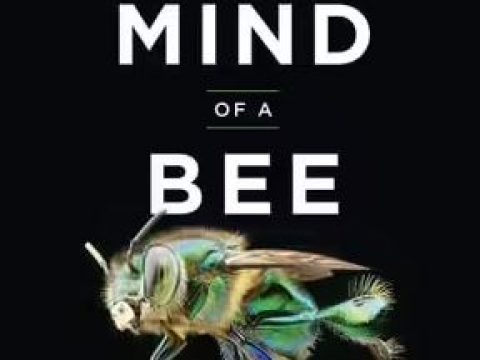 The mind of a bee / Lars Chittka
The mind of a bee / Lars Chittka
Chittka, a behavioral ecology professor at Queen Mary University of London, combines cutting-edge science with a rich historical perspective in this take on what it means to be a bee. His goal, which he accomplishes remarkably well, is to dispel the belief that an individual bee is nothing more than “a mindless cog” in a hive; instead, he argues, bees have “beautifully elaborate brains.” He considers whether bees have individual personalities, experience consciousness, or dream, and in each case, using experiments he and his coworkers have undertaken, explores the likelihood of answers in the affirmative. He demonstrates that bees can be trained to recognize faces, “have a visual processing speed five times faster than humans,” are capable of learning certain tasks that prove they comprehend the concepts of “above” and “below” quicker than primates, and can learn to use tools. Throughout, Chittka offers evolutionary explanations for many of the behaviors he describes—insects, for example, “were pre-adapted for flower color-coding hundreds of millions of years before there were any flowers.” The knowledge on offer here is as entertaining as it is edifying. Readers won’t look at bees the same way again. Publishers Weekly, April 2022
 Digging up trouble / Kitt Crowe
Digging up trouble / Kitt Crowe
Aspiring writer Lexi Jones, the 27-year-old narrator of Crowe’s diverting debut and series launch, manages the Sweet Fiction Bookshop in Confection, Ore. Lexi doesn’t get along with her ornery neighbor, Gil Cloutier, who complains that Lexi’s “border collie–pit mix,” Cookie, digs up his garden. One night, Lexi works on a scene for her suspense novel in which she imagines a serial killer using a pipe to bludgeon to death a stand-in for Gil. The next morning, Cookie slips into Gil’s yard, where Lexi finds the dog with a copper pipe in her mouth. Nearby is what looks like a shallow grave—with Gil’s body inside. Already at the scene is Det. Chad Berg, to whom Lexi admits she quarreled with Gil the day before. The detective suggests she might need a lawyer. Fortunately, there are plenty of other suspects (including Confection Garden Club members who might have wanted to eliminate Gil because he was the shoo-in winner for the $15,000 prize in the upcoming best garden contest), and the members of Lexi’s book club join her in some amateur sleuthing. A second murder raises the stakes, and the relationship between Lexi and Chad generates some romantic heat. Cozy readers will look forward to Lexi and Cookie’s next adventure. Publishers Weekly, August 2021


